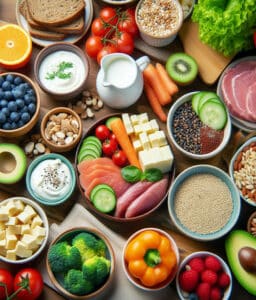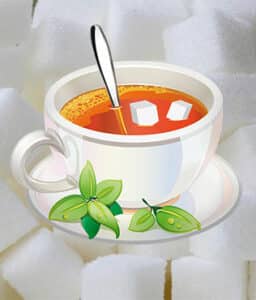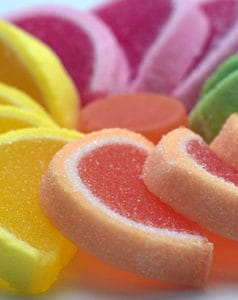Energy drinks and Sports drinks
Energy drinks and Sports drinks are two completely different types of drinks. They are different both in composition and purpose.
Let's look at them one by one.
Energy drinks
These are drinks that usually contain large amounts of caffeine, added sugar, legal stimulants, and other additives and are designed to increase alertness, concentration, and energy (physical performance). At the same time, they also increase blood pressure, heart rate, and respiration.
Energy drinks usually contain:
- Methylxanthines (including caffeine);
- B vitamins;
- Corn syrup or high fructose sugar (for non-diet versions);
- Guarana;
- Yerba mate;
- Açaí;
- Taurine;
- Various forms of ginseng, maltodextrin, inositol, carnitine, creatine, glucuronolactone, sucralose or ginkgo biloba .
Energy drinks are advertised as a quick and easy way to improve our mental and physical abilities. Caffeine gives a boost and sugar in non-dietary energy drinks gives energy, but there is no scientific evidence that the addition of other ingredients has any effect on human performance or health.
Coffee, tea, and other naturally caffeinated beverages, and caffeinated soft drinks such as cola, are generally not considered energy drinks.
Energy drinks and brain function
Energy drinks are consumed for various reasons. One of the most popular is the desire to improve concentration and alertness.
Several studies confirm that energy drinks can actually reduce mental fatigue and improve brain functions such as memory, concentration, and reaction speed.
For instance, this study showed that drinking one 500ml can of Red Bull temporarily improved both concentration and memory by about 24%.
Many researchers believe that this effect is due only to the content of caffeine in energy drinks, others believe that a combination of caffeine and sugar is necessary to achieve the best result.
In both cases, a similar effect can be achieved by drinking a couple of cups of strong and sweet coffee. For comparison, one cup of espresso contains about 64 milligrams of caffeine, while the caffeine content in energy drinks ranges from 40 to 250 milligrams per serving of 237-250 ml.
Energy drinks and fatigue
Another reason for consuming energy drinks is to reduce fatigue.
Several studies using driving simulations have concluded that energy drinks can improve driving quality and reduce drowsiness even in drivers who have not slept enough.
But.
Although energy drinks can help us stay alert and awake, there are studies that show that energy drink consumption can negatively affect sleep quality.
Health effects of energy drinks
Health problems are mainly caused by "overdosing" on caffeine and consuming too much sugar.
Caffeine in large quantities reduces the ability of blood vessels to expand. If your blood vessels constrict, your blood pressure rises. Vasoconstriction and impaired blood flow can lead to heart attacks, strokes, and damage to vital organs.
It should be emphasized here that the problem is not in the energy drinks themselves, but in their excessive and inappropriate use. Accordingly, the already mentioned coffee can cause similar problems, but it is much easier to drink two or three cans of energy than a couple of liters of strong coffee.
400 mg of caffeine per day is considered safe for a healthy adult. If one portion of an energy drink contains 200-250 mg of caffeine on average, it is safe to drink 1.5 to 2 portions per day.
The statistics are quite impressive – the number of people seeking help at emergency medical facilities for energy drink-related problems is increasing rapidly.
Some of the problems caused by energy drinks are:
- Dehydration (not enough water in the body);
- Heart complications (such as irregular heartbeat and heart failure);
- Anxiety (feelings of anxiety and nervousness);
- Insomnia.
Young people and athletes (because they consume more energy drinks than others), caffeine-sensitive people, pregnant women, and people with cardiovascular disease are most at risk of experiencing complications from energy drink consumption.
Energy drinks are also associated with:
- Increased frequency of alcohol-related injuries, as the combination of caffeinated drinks and alcohol, makes it difficult to determine your level of intoxication. Accordingly, the person does not feel intoxicated yet, but his coordination of movements and reaction time have already been disrupted;
- Overweight and obese, because many of them contain a lot of sugar (calories).
Sports drinks
Also known as electrolyte drinks. These are functional drinks, the purpose of which is to help athletes restore the level of water and electrolytes before, during, and especially after training or competitions.
Sports drinks are available in a variety of flavors and both as ready-made drinks and as powders that you have to mix yourself.
Sports drinks are divided into three main categories:
- Hypotonic sports drinks contain a lower concentration of salt and sugar than the human body:
- Contains electrolytes and low carbohydrate content. Quickly restores fluids lost with sweat:
- Suitable for athletes who need a liquid with low carbohydrate content, for example - gymnasts.
- Isotonic sports drinks contain a similar concentration of salt and sugar as the human body:
- Contains electrolytes and 6-8% carbohydrates. Quickly restores fluids lost as a result of sweating and provides the body with the necessary amount of carbohydrates;
- The choice for most athletes (middle and long-distance running or team sports).
- Hypertonic sports drinks contain a higher concentration of salt and sugar than the human body:
- Used to supplement carbohydrate intake. Usually, after exercise to replenish muscle glycogen stores;
- Suitable for athletes who have a very high energy consumption;
- When consumed during exercise, hypertonic drinks should be taken along with isotonic drinks (or water) in order to restore not only salt and glycogen but also the lost fluid.
Most sports drinks belong to the category of isotonic drinks and contain 13 to 19 grams of sugar per 250 ml serving (2 to 3 teaspoons).
The effect of sports drinks on sports performance is also questioned because the research results are inconclusive - some studies have shown the benefits of sports drinks for adult athletes, but some studies do not show any positive results.
Some studies also link sports drinks to weight gain – the more often sports drinks were consumed, the greater the association with increased body mass index (overweight and obesity), especially in boys.
How quickly does the body absorb sports drinks?
Our body assimilates nutrients through the intestines. The absorption rate of sports drinks is mainly affected by:
1 Amount of carbohydrates:
- The higher the level of carbohydrates in the drink, the slower they are excreted from the stomach and, accordingly, the slower they are absorbed;
- Isotonic drinks with a carbohydrate content of 6 to 8 percent are excreted from the stomach at the same velocity as water.
2 Amount of electrolytes:
- The sodium and potassium in the drink reduce urine output. Reduced urine output promotes faster exit of liquid from the stomach and absorption from the intestines. And promotes fluid retention.
What are electrolytes?
"Electrolyte" is a general term for particles in solution that can conduct electricity.
In nutrition, this term refers to the essential minerals found in our blood, sweat, and urine. When dissolved in a liquid, these minerals form electrolytes that are used in metabolic processes.
They play an important role in conducting nerve impulses and muscle contraction.
Electrolytes control water osmosis;
Electrolytes help maintain the acid-base balance (pH level) necessary for normal cell function.
During physical exertion, we sweat and lose electrolytes along with water, so it is important to replenish our "reserves" regularly.
The composition of electrolytes can vary from person to person, but usually they are:
- Sodium;
- potassium;
- Calcium;
- Magnesium;
- Chlorides;
- Bicarbonates;
- Phosphates;
- Sulfates.
How to choose the most suitable sports drink?
There are many different sports drinks - both in terms of composition, concentration and taste.
Try. Each body is individual, so focus on how you feel during and after training.
Start with hypotonic drinks. If you feel that you are losing strength and energy during a workout – try isotonic sports drinks.
Hypertonic sports drinks are more suitable for the recovery of the body after training and/or during very heavy and long workouts.
Ask your fitness trainer and/or doctor for advice if you need help.
Key takeaways
With sports drinks, everything is quite clear - they help us restore fluid and electrolyte balance.
Everything is more complicated with energy drinks.
More and more studies show that energy drinks can have serious health consequences, especially for children, adolescents, and young people who cannot limit themselves to one drink.
Several studies have found that energy drinks improve physical endurance, but there is almost no evidence of any effect of energy drinks on muscle strength or power. Energy drinks can improve alertness and reaction speed, but they can also decrease stability.
The amount of caffeine in energy drinks varies widely, and the actual caffeine content can be difficult to determine. Some energy drinks are marketed simply as sodas and others as nutritional supplements. The amount of caffeine is not necessarily indicated on the label, and even if it is indicated, it is possible that the actual amount is even higher, because some ingredients of the drink may also contain caffeine, for example - guarana.
The conclusions are obvious:
- Never use energy drinks with alcohol;
- Read labels and aim for no more than 400mg of caffeine per day.
Remember that many drinks, including cola, coffee and tea, also contain caffeine:
- Coffee averages 40 mg of caffeine per 100 g;
- Tea averages 11 mg of caffeine per 100 g;
- Cola has about 8 mg of caffeine per 100 g.
Energy Drinks Promise Edge, but Experts Say Proof Is Scant
ACSM Announces New Recommendations and Warnings Regarding Safety of Energy Drinks
Energy Drink Consumption: Beneficial and Adverse Health Effects
Cognitive and physiological effects of an "energy drink"
Positive effects of Energy Drink on driving performance during prolonged driving
Efficacy of a "functional energy drink" in counteracting driver sleepiness
The suitability of a caffeinated energy drink for night-shift workers
Guarana Provides Additional Stimulation over Caffeine Alone in the Planarian Model
Effects of energy drink ingestion on alcohol intoxication
Energy drink co-administration is associated with increased reported alcohol ingestion
Patterns of use and motivations for consuming alcohol mixed with energy drinks
'Lack of evidence' that popular sports products work

Help to maintain this site, create interesting articles and delicious low-calorie recipes!
Share this article
Follow me on Facebook
I recommend reading these articles as well

What are macronutrients and what are micronutrients?
How does counting macronutrients help you live a healthy life? And what is the difference between macronutrients and micronutrients?

Sugar substitutes
The sugar substitutes discussed in this article are good alternatives for people who are not advised to use sugar due to illness or being overweight. The key word here is alternatives, which means that they should be used instead of refined sugar - and in moderation.

Sugar - should you give it up when you lose weight?
I encounter many stereotypes on a daily basis, one of them - sugar is dangerous to health, it must be given up! So what exactly is the role of sugar in the diet and its role in the weight loss process?

Which oil is better for frying, and which for salads?
How to choose the healthiest and most suitable oil for the specific type of cooking. Why may frying oil not be suitable for sauces or salads?

